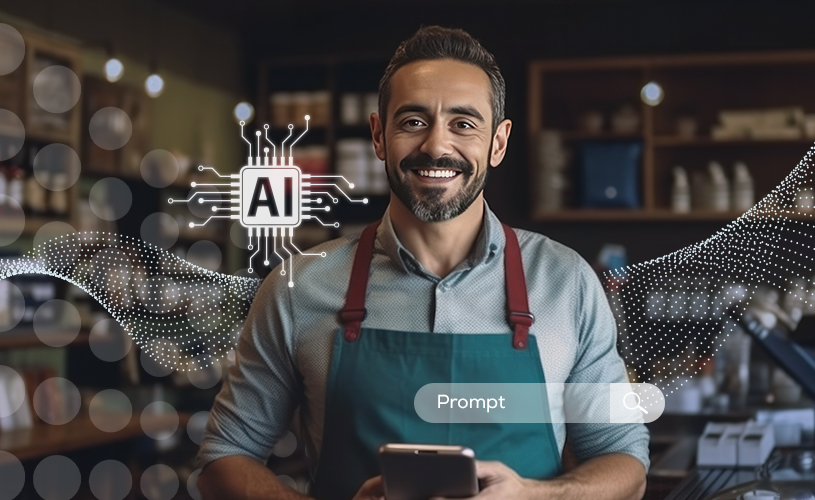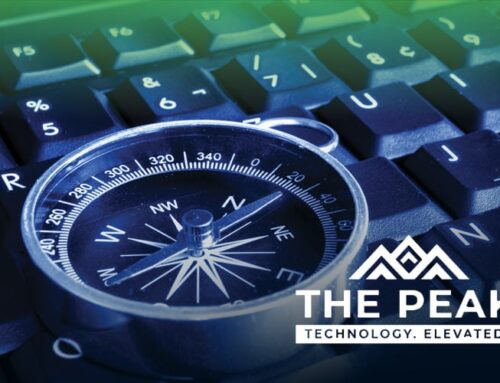
Demystifying AI Security: A Guide for Businesses Considering ChatGPT and Microsoft Copilot
The digital landscape is constantly evolving, with next-gen applications like artificial intelligence (AI) emerging with the promise of revolutionizing how businesses operate. While AI tools like ChatGPT and Microsoft Copilot promise significant efficiency gains in tasks ranging from content creation to customer service, their security implications demand careful consideration. This blog outlines the strengths and weaknesses of each platform that can aid in the process of making an informed decision about AI and your business.
ChatGPT: The Double-Edged Sword of Efficiency
ChatGPT, powered by the GPT-3 architecture, shines in its ability to generate human-quality text, automating tasks and streamlining workflows. Security-conscious by design, it prioritizes data privacy with encrypted interactions and doesn’t store personal data by default. However, this focus on openness translates to potential security vulnerabilities. ChatGPT’s ability to integrate with various APIs and systems creates a complex environment that requires businesses to be highly vigilant. Implementing robust security protocols and maintaining constant oversight is crucial to mitigating these risks.
Microsoft Copilot: Security Within a Familiar Ecosystem
While it shares the same OpenAI chassis as ChatGPT, Microsoft Copilot thrives within the Microsoft 365 suite, seamlessly integrating with existing applications to become a productivity powerhouse. This tight integration gives it inherent security benefits by leveraging Microsoft’s established enterprise-grade security measures. Advanced data encryption, a robust security framework trusted by countless businesses, and industry-recognized compliance certifications act as the backbone of Copilot’s security posture.
Additionally, because Copilot operates within the controlled environment of Microsoft 365, the platform has a leg up over ChatGPT when it comes to minimizing the risk of data exposure to third-party services or bad actors, offering peace of mind to security-conscious organizations.
A Deep Dive: Security Features Compared
Data Handling and Privacy:
While ChatGPT offers secure data processing on OpenAI’s servers, the responsibility of managing data privacy and adhering to a client’s data handling policies falls squarely on your shoulders. In contrast, Microsoft Copilot is baked into the Microsoft infrastructure, potentially simplifying data privacy management as Microsoft takes primary responsibility for the platform’s overall security.
Compliance and Regulatory Standards:
When it comes to handling sensitive information, adhering to stringent regulatory standards is non-negotiable. Microsoft’s solutions are well-known for their compliance with a wide range of international security standards, making Copilot a potentially more reassuring choice for organizations operating under strict regulations like HIPAA or GDPR. In comparison, ChatGPT may require additional layers of compliance checks to ensure alignment with these regulations because of its platform-agnostic architecture.
Security Infrastructure:
The robust security infrastructure of Microsoft 365, which Copilot benefits from, boasts advanced threat protection, security management tools, and comprehensive compliance features. This translates to a potentially more secure environment when deploying AI across an organization’s communication and data processing workflows. ChatGPT’s security hinges on the user’s implementation strategy. While it offers flexibility, the platform requires a more hands-on approach to secure integration with the existing infrastructure and adherence to best security practices for all communication channels.
The Verdict: Selecting the Right AI Partner for Your Needs
The decision between ChatGPT and Microsoft Copilot boils down to the specific security needs of an organization and its clients. For those who prioritize top-tier data security and strict compliance adherence, Microsoft Copilot’s inherent security features may be more appealing due to its seamless integration within the trusted Microsoft ecosystem. However, for organizations that prefer a higher degree of flexibility and control and have the necessary resources at their disposal, ChatGPT could be a powerful option, provided they have the expertise to manage its potential security vulnerabilities.
The Road Ahead: Security and Efficiency, Hand in Hand
Effectively implementing AI necessitates a balanced approach that prioritizes both efficiency and security. Whether choosing ChatGPT or Microsoft Copilot, small businesses must prioritize secure configurations, robust data privacy practices, and unwavering adherence to compliance regulations. As the AI landscape continues to evolve, so must the security strategies that protect it. By staying ahead of the curve and adopting a security-first mindset, businesses of all sizes can leverage the advantages of AI to empower their clients and thrive in a landscape where new challenges and opportunities are constantly appearing and evolving.
CONTACT US: With years of experience addressing the technology needs of small and medium businesses, let Vertikal6 help the office get more done. Contact us for a free IT assessment.
Start here to level up your IT.
Click below or call our Rhode Island headquarters at: 401-825-4400.









